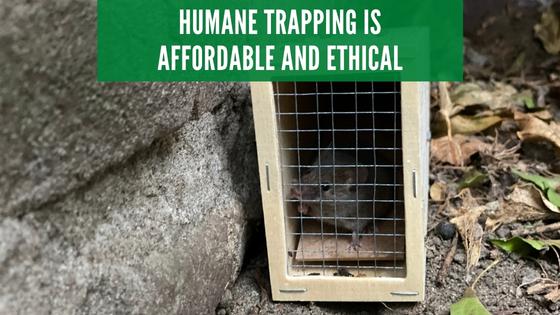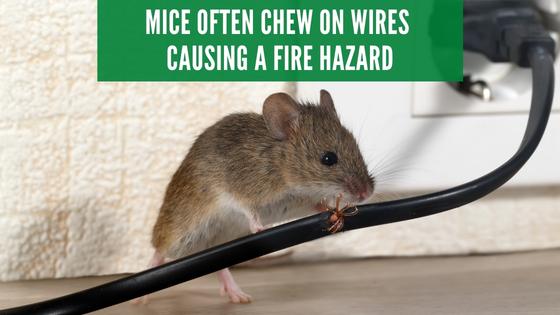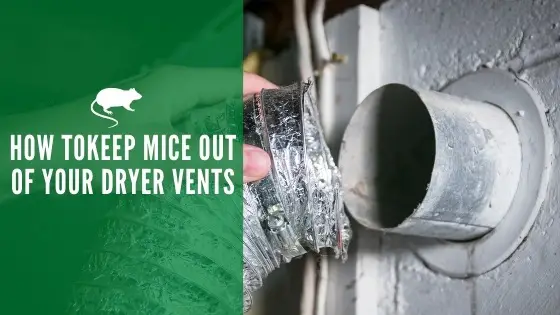When to Call an Exterminator For Rats & Mice?

Mice are cute when you see them depicted in a cartoon, but the ones you deal with in real life are far from being whimsical creatures. Seeing a single mouse scamper across the yard might not be enough cause for alarm. But knowing when to call an exterminator for rats and mice goes a long way toward preventing an extensive infestation.
Signs of a Rat Infestation
Fortunately, rats and mice aren’t as good at hiding as they hope to be. Rodents frequently nest in out-of-the-way spaces, but they still have to run through places humans inhabit as they search for food and water.
As rodents scamper about and build their nests, they leave several telltale signs of their existence on your property.
Seeing Live or Dead Rodents
Seeing a live one running through your house is the most obvious sign of a rodent problem. Rodent infestations often start in garages and other less frequently used parts of your home. Or, you might even see one hanging around the grill in your backyard.
Whether you see one dead or alive, you’ll want to assume that there could be more. When you call the exterminator, let them know where the rodent was discovered. If it is dead, they can help you find a safe way to remove the body without putting yourself in harm’s way.
Finding Gnaw Marks
If you’ve ever owned a gerbil or hamster, you already know how much rodents need to gnaw on wood and other surfaces to keep their teeth sharp. Gnaw marks on the inside of your home should never be considered natural, and too much gnawing can damage important parts of the structure.
Pointing an exterminator in the direction of the gnaw marks gives them a good starting place for beginning an inspection.
Spotting Smudges
This might be one of the grosser signs of rat infestation. Rodents aren’t known for having good grooming habits, meaning their fur and abdomen are often coated in a greasy substance.
As a rat or mouse runs over wooden beams or through a tunnel, they’ll leave behind greasy smudge marks. As disgusting as these may look, they could serve a more nefarious purpose. Rat and mouse smudges can contain pheromones that call other rodents to the area.
Discovering Tracks
Like other wild animals, rodents tend to leave track marks in the spaces they run. You might be able to spot rat tracks outside if there is soft dirt near their entrance. Or, you might notice the tracks on a dusty garage shelf.
Rat and mouse tracks often look like pairs of feet with a line running through them from their tail. However, it can be hard to distinguish rat tracks from other rodents, such as a squirrel. A pest professional will know how to tell the difference so that you use the right control method.
Hearing Live Animal Sounds
The energy levels of rats and mice tend to run high, especially when actively reproducing and building nests. This often leads to them knocking things over, scratching along the walls, or gnawing away at all hours of the day or night.
You should always hear those squeaks, scratches, and bangs as a sign to contact an exterminator right away.
Dangers of a Rat & Mouse Infestation
Ignoring a rat problem puts you at risk for more than being unpleasantly surprised during the night. Rodent behaviors are known for causing potential harm to humans and their property.
House Fires

Mice chew on anything and have no regard for avoiding items that humans know are potentially dangerous. Rodents often chew through building wiring, which raises the risk of having a spark set off a major fire.
Illnesses
Rodents carry and spread many diseases that are transmissible to humans as well as their pets. Hantavirus, leptospirosis, monkeypox, and salmonellosis are just a few.
Even if you don’t come in direct contact with a rodent or its droppings, they can also spread disease indirectly. Fleas that bite an infested rodent can then go on to transmit illnesses such as flea-borne typhus. Mosquitos can also pick up and spread the West Nile Virus after feeding on an infected rat or mouse.
General Property Damage
With the rising cost of food, the last thing you want is to clear out your pantry. Rats and mice often go straight for your food stock, which can lead to ruined boxes of food that are no longer safe for human consumption.
As if having your food invaded isn’t bad enough, chewing can also hit your furniture, clothing, and other important belongings. Then, rats nest in your house can leave behind thousands of dollars of damage in materials soiled by their urine and droppings.
Reaching out to an exterminator early in the infestation can help you avoid repairing or replacing thousands of dollars worth of damage.
The Ideal Time to Call a Rat Exterminator
Rodent infestations are a growing problem in many communities. While people tend to expect rats and mice to invade during the cold winter months, the truth is that they can come inside at any time of year.
Staying on track with your seasonal pest inspections is still a good idea, but you might need an additional visit from the exterminator when you see signs of rodent activity. Calling an exterminator as early as possible helps to preserve everyone’s safety and the structural integrity of your property.
How Do Exterminators Get Rid of Rats and Mice?
If the thought of having to deal with a mouse trap makes you cringe, then it’s good to know that there are people out there who have the nerves of steel required for handling rodent sightings.
An exterminator may recommend one or all of the following treatments to restore peace in your home or commercial office building.
Humane Trapping and Relocating

Many over-the-counter traps cause serious suffering to a mouse, and they could leave you with the problem of figuring out how to get rid of one that is still alive.
Handling trapped animals should always be left to the professionals who know how to remove them without receiving a dangerous bite.
With humane traps, the exterminator will place them in areas where the rodents are likely to run, such as near an entrance. Once they have the wild animal, they can relocate them to a safe location many miles away.
Rodenticides
Rodenticides are poisons that may be sprayed or placed in baits to eliminate rats and mice. The EPA regulates the use of these chemicals, and they are quite efficient when used by a professional.
Exterminators know how to use strong rodenticides safely, and they’ll be able to do so in a way that protects vulnerable people and pets from harm.
Exclusionary Measures
A small mouse can fit through a crack as tight as one-fourth inch wide. This makes excluding rodents hard, but not when you have the help of a professional.
In addition to using chemical applications and traps, your exterminator may show you how to close up holes and other areas that the rodents have been using as entrances. Wrapping the whole process up by making sure that the rodents can’t ever come back in makes it possible to stop working on finding a mouse in your house.



